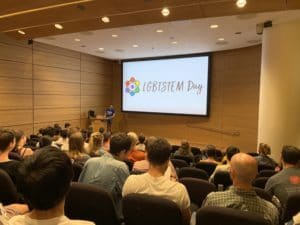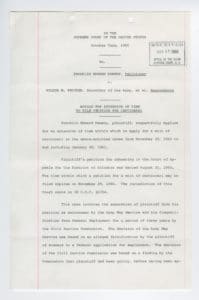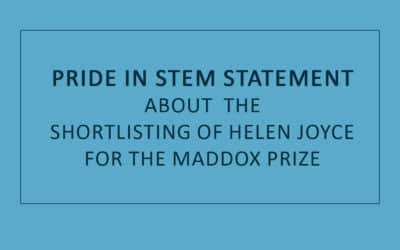
When we selected a date for the first International Day of LGBTQ+ people in STEM, our rationale was to find a time close enough to Pride Month that didn’t conflict with any other major events or days of celebration.
Since the very beginning, we have discussed July 5th as a suitable date with members of the community and organization who have taken interest in marking the day. While the date worked well for our first two years, we think a better date may exist, particularly for US audiences (due to the proximity to 4th of July celebrations), and for universities (due to it falling outside of term time).

For this reason, we included a question about the date in our recent feedback survey about LGBTSTEMDay 2019. While we were able to gain a lot of insight on other aspects, there is no consensus on what the best date might be moving forward. The multiple-answer question was set up to try to establish some parameters for proposals, however, opinions differ a lot. For this reason, before a formal announcement, we wrote this blog post as a pitch to the wider community to help us make this decision.
So, for the last month, we have been considering options – fixed date, term time, Pride Month, marking an LGBTQ+ in STEM-related date. And you won’t be surprised to know that it is very difficult and having term time and pride month, is nearly impossible for many universities. Given that our first two editions happened near Pride Month, we decided to move away and see if that changed anything.
We planned to have a series of possible dates for people to pick from but we stumbled on one that we believe it is particularly significant and timely.
Frank Kameny was an American astronomer who graduated from Harvard under the supervision of Professor Cecilia Payne-Gaposchkin, the first woman to head a department at Harvard and the first person to realize that stars were mainly made of hydrogen and helium.
Kameny was a gay man. He was hired in the U.S. Army’s Army Map Service in July 1957 but was fired in January 1958 because they found out he was gay. He was barred from future employment by the federal government.
He appealed his firing through the judicial system but was unsuccessful, so he took the fight all the way to the US Supreme Court. In 1960, during the October Term he fought this battle and a document (linked here) bears the date of November 18.

This date jumped out at us. As we write, the US Supreme Court is deciding if the Civil Rights Act protects LGBTQ people from employment discrimination, with trans rights and the personhood of trans and non-binary people being called into question. This awful attack on our community showed that while progress has been made, the rights we have fought for can easily be taken away.
Repressive and Draconian laws are still present in many countries across the globe, regressive attitudes are not only prevalent but have found new breath in the rise of fascist populism worldwide. New laws are being proposed to curtail the rights of our queer siblings in many different countries. Science, particularly genetics, has been misused and misrepresented in many of these discussions.
Next autumn marks 60 years since Kameny’s judicial battle reached its conclusion. Kameny never held a paid job again but he continued his activism until his death in 2011.
We propose November 18th as the date for LGBTSTEMDay 2020, because it felt as a particular moment when a queer scientist stood up for our community. And we hope that it could come to represent all the people that today continue to make the world of STEM a better and more inclusive place, and they make the world a better place thanks to their contribution to STEM.
If we do decide to go with this date, we propose announcing it on November 18th this year, to give our community a full year to plan and prepare for their LGBTSTEMDay activities. But before we decide, we would love to hear your feedback – maybe we have missed an opportunity for a better date, or maybe we have overlooked something with this date. Either way, please do share your thoughts, and we will work together to plan next year’s event.
Small Grant Scheme 2024
This year our theme is “Queer in STEM beyond visibility” - we’re looking for projects across the UK that engage with our theme in their local community. We are especially interested in supporting projects that are developed with, by, and for minoritised LGBTQ+...
Pride in STEM statement about the shortlisting of Helen Joyce for the Maddox Prize
Pride in STEM is wholeheartedly disappointed in the decision taken by Sense About Science to shortlist Helen Joyce for the Maddox Prize, with the following motivation: “Helen Joyce has been shortlisted for her courage in raising the importance of considering...
Inclusivity In Medicine Still Fails Black People
Discussions of inclusivity in STEM too often do not address major diversity issues, in particular, they do not centre the needs of people of colour. Medicine is no exception and many steps can be taken to ensure medicine is a safe space and safe for all, whether...
The Inescapable Link Between Science Communication & Identity
Scicomm is critical to translate complex scientific challenges to a range of audiences. But often, the fact that 'the messenger is just as important as the message' is ignored. Host Dr Craig Poku (he/they) is joined by the wonderful Sarah Cosgriff (she/they). She...
Hidden Voices: Challenges Within The Climate Justice Movement
Marginalised voices are often excluded within the climate justice movement, a movement that is in itself often ignored when it comes to the unfolding Climate Crisis. In this episode, Craig Poku (he/they) is joined by Dr Salma Sabour (she/her) to discuss research, and...
Outside The Binary: Navigating A Career In STEM As An Intersex Person
When you have specific identities, engaging in a career in STEM can be difficult. Sadly, this is the case if you identify as intersex. However, what can we learn from those who are intersex to address their specific barriers? Joining Craig Poku (he/they) is Claudia...
The Invisible Barriers To Being A Volcanologist In The Modern Day
Disabilities have been shown to impact your career path, especially when you want to partake in STEM. However, how do they cause specific problems when you have a chronic illness? Joining Craig Poku (he/they), in today's conversation is the wonderful Dr Jazmin...
Navigating Academia When You Are Neurodivergent
In this episode, Dr Craig Poku (he/they) are joined by the brilliant Dr Matt Frost (he/him). The discussion focuses on the additional struggles of navigating academia and a science career as someone who is neurodivergent as well as the solutions the academy could take...
Being Black in STEM: Facing The Barriers Head-On
We are back for Season 2 of the Pride in STEM podcast! Joining Craig Poku (he/they) in this episode is the wonderful Kemi Oloyede (they/them), where we talk about their career journey, the barriers faced by Black scientists engaging in STEM and how...
TELL US SOMETHING
If you have questions, proposals or any doubt, please don’t hesitate to contact us



